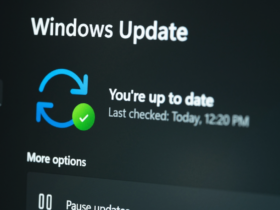Your guest experience is a sum of many parts, including everything from your location to your staff’s attitude, but perhaps the one that’s most easily quantifiable is your amenities. Whether you just provide a bar of soap and a single pillowslip, or you pack the minibar with your guests’ favourite champagne to be enjoyed in a complimentary robe and slippers, your amenities play a key role in setting the tone for the guest’s stay.
In addition to creating a favourable experience, these offerings can also significantly impact guests’ decisions to book a stay at your property and may be the reason for leaving a positive review afterwards. In fact, according to an Expedia survey more than “70% (of guests) are willing to pay extra for properties that have their favourite amenities and services”.
Certain amenities, like tea and coffee facilities in the rooms, have become commonplace and guests have come to expect them. But savvy hoteliers can leverage unique amenities to boost their brand voice, highlight their property’s unique selling points (USPs) or bring some local community flare into the guest’s stay.
How to take your amenities up a notch…
1. Cater specifically to your core clientele
A good place to start is with your target audience, who are you hoping to attract with your current marketing and what would that group of travellers be looking for? The aim should be to delight your niche market while still accommodating a broader range of travellers. For example, these hotels have kept their core client niche in mind when they set up their hotel amenities:
Explore 10 niche tourist types your hotel might be able to attract
The Epic Hotel in Miami offers handicap-accessible rooms, which provides in addition to the usual grab rails in the bathrooms, they offer visual alarm clocks, bed shakers, door knock alerts, visual fire alarms, braille and tactile signage is provided and hotel employees will read menus and other printed/visual information to guests who are blind or have impaired vision.
Image © Epic Hotel
The Dorsett Hotel in Hong Kong attracts many families and as such they have set up a special children’s amenities selection. This includes things like a child-sized bathrobe and slippers, kiddies welcome gifts including a snack box and teddy bear and complimentary 2-hour babysitting service.
Image © Dorsett Hotel
2. Emphasise what makes your property unique
Beyond understanding your target audience, consider your hotel’s unique selling points (USPs). These USPs will guide your amenity strategy. For example, a luxurious beach lodge naturally emphasises amenities like swimming towels for guest convenience. Conversely, a city hotel catering to business travellers can confidently skip the swimming towels, instead focusing on high-speed Wi-Fi, convenient work centres, and on-demand printing services.
Understanding the key needs your guests have together with the unique features of your property enables you to tailor amenities that align with those areas of focus. By strategically selecting amenities that resonate with your hotel’s unique characteristics, you can enhance the overall guest experience.
Some unique examples:
The Brewdog craft beer hotels stand out in the hospitality industry by ingeniously incorporating their signature craft beers into every facet of the guest experience. From in-room draft machines to beer fridges in the showers.
Image © Brewdog
Hard Rock lives up to its name with its “Sound of Your Stay” amenities collection. Guests can choose to have their rooms furnished with DJ equipment or a Fender guitar to use during their stays. These come with headphones (so as not to disturb other guests) plus guests can even practice along with in-room video guitar lessons. If creating music isn’t on their list of things to do, Hard Rock Hotel guests can also simply request to have their choice of music sent to their rooms.
Image © Hard Rock Hotels
3. Focus on personalisation
With more companies offering high-level personalisation, guests are now used to having some level of personalisation. According to a study by McKinsey, “71% of consumers expect companies to deliver personalised interactions”. But what is even more concerning for hotels not offering personalisation is that “76% get frustrated when this doesn’t happen.”
Pre-stay surveys are invaluable for personalising guest experience – the best way to find out what guests want is to ask. You can ask about bedding, toiletry and minibar preferences, and whether guests would prefer self-service check-in via a mobile app. In addition to a pre-stay survey, you need to ensure that you gather as much information on guests as possible and store it for future reference if the guest stays again.
One of the simplest yet most effective hotel amenity ideas is to offer personalised welcome gifts tailored to each guest. By leveraging the information gathered during the booking process, such as the purpose of their visit and any accompanying guests, hotels can create thoughtful and tailored welcome packages. Never underestimate the power of a simple, thoughtful gesture to make a guest’s stay truly special. Plus, guests will probably love photographing something with their name on it and posting it on social media, creating user-generated content (UGC) for your hotel.
Some hotels that are getting the details right:
The View in Lugano Switzerland offers guests an array of tailor-made options, from selecting their pillows from a choice of 9 different types to selecting the fragrance of their bath products and even choosing the colour of their toilet paper, everything is tailor-made for the guest.
Image © The View Social Media Page
The Peninsula Beverly Hills goes the extra mile in personalised amenities, offering their guests monogrammed pillow slips which guests can take home with them. The monogrammed pillows get lots of mentions in their reviews and are one of the top photographed images in their traveller photographs on Tripadvisor – it seems to truly delight their guests.
Image © The Peninsula
4. Create a ‘wow’ factor
For any hotel, delighted guests are an invaluable marketing asset. More than just talking about their fantastic trip with friends and family you want to ensure that guests are so pleased that they feel compelled to leave glowing reviews and even offer up some UGC in the form of social media posts and mentions.
To differentiate your hotel and leave a lasting impression, it’s essential to offer distinctive and appealing amenities that stand out from your competition. The more unique and outstanding your amenities are, the more likely they are to be talked about, reviewed and photographed. Forget amazing views and world-class locations, some hotels have managed to make their amenities their USP.
Exceptional examples:
The Curtis Double Tree by Hilton in Colorado offers themed rooms which really stand out. Each of the 336 guest rooms is thoughtfully designed with a distinct pop culture theme, offering a unique experience that resonates with the individuality of their guests. Visitors can choose from options like an Arcade room filled with nostalgic arcade games, the Star Trek sci-fi room, the Barbie room or the Comic Book room. Each is carefully thought out with decor and amenities that transport the guest to a unique space. Here the rooms become an immersive experience, not just a place to sleep.
Image: The Curtis
The Grand Hotel Tremezzo of Lake Como in Italy offers guests a special touch of history with its turndown service. Every night, guests receive love letters penned by previous visitors from the 1900s, adding a unique charm to their stay. These heartfelt letters, discovered hidden behind wallpaper in a secret wardrobe, were kept as a family treasure before being shared with guests to enhance their experience at the hotel.
Image © Mr & Mrs Romance
5. Upgrade your amenities with technology
With so much technology at your fingertips, it’s important to make the most of it, because your competitors are. Guests have become accustomed to certain technological amenities. For example, a study done by Oracle Hospitality and Skift found that 43% [of surveyed guests] want voice-activated controls for all amenities in their rooms (lights, curtains, door locks, etc.).
There are some commonplace technologies which have been adopted by many hotels which include; free wifi, mobile check-in and smart TVs that can sync to the guest’s mobile device or sign in to their streaming platform profiles. Then there are other nice-to-have technologies like in-room tablets, such as SuitePad, which can be used to order room service, book extra services or even control aspects of the room from temperature to lighting. Technology usually allows for enhanced personalisation and often greater control for the guests, meaning that they can tailor their stay to their exact specifications, without having to wait for a reception assistant or concierge.
Read more about enhancing in-room experience with these expert tips
Exceptional examples:
Hotel 1000 in Seattle in addition to installing heat sensors in guest rooms to ensure that housekeeping knows when guests are in their rooms and may not want to be disturbed, the Hotel 1000 in Seattle has also teamed up with Full Swing and now offers a “Nineteenth Hole” Seattle’s only Topgolf Swing Suite which allows for a full virtual golf game experience. Finally, if hi-tech guests need to get around the city they can do so in sustainable style as the hotel also offers Tesla electric vehicle hire.
Image: Hotel 1000
The InterContinental Beijing Sanlitun and InterContinental Guangzhou Exhibition Centre hotels in China have included some groundbreaking technology in their rooms. In collaboration with Baidu they have introduced a full artificial intelligence service in their “smart” rooms. Through voice commands, guests can effortlessly control various in-room features such as temperature, lighting, and even place room service orders. The InterContinental group states that they will be rolling out this smart room technology in over 100 other clubs throughout China in the near future.
Image © IHG Hotels & Resorts
6. Bring in your local culture
Guests are increasingly looking for culturally immersive experiences rather than traditional hotel stays isolated from the surrounding location. Travellers want authenticity and want to become involved in the day-to-day living of the destination they are visiting. An American Express Travel report found that “85% of respondents agree that they want to visit a place where they can truly experience the local culture”.
Satisfy travellers’ desires to immerse themselves fully in a destination’s culture in a novel way by incorporating local culture in your hotel’s amenities – think hand-poured soaps, local wines and artisanal chocolates on the pillows.
Exceptional examples:
Guests can experience a touch of local culture at The Pavilions Himalayas in Nepal, where they can have a unique experience of gathering and savouring in a glass of buffalo or goat milk in their villa. This eco-friendly hotel extends its sustainable practices to the in-house production of biodegradable soap and the day spa only uses all-natural spa products made on-site from locally sourced organic ingredients, many of which are grown right on the eco-farm, showcasing the hotel’s commitment to sustainability while embracing the essence of Nepalese traditions.
Image © The Pavilions Himalayas
Or there is the unique ‘Welcome Smoke Ceremony’ at Pretty Beach House situated in a culturally rich area of New South Wales, Australia, that is home to native aboriginal art and is considered sacred. Here, guests are introduced to the Aboriginal culture with the smoke ceremony led by the Aboriginal elders who tell ancient Dreamtime stories while guests listen to the unique sounds of the didgeridoo. This cultural encounter fosters respect and understanding for the local traditions.
Image © Pretty Beach House
7. Embrace the health & wellness trend
Wellness is one of the fastest-growing sectors in the hospitality industry and is predicted to be worth almost $1.4 trillion by 2027. Globally, there has been a significant increase in the emphasis on caring for both mental and physical health. This was confirmed in 2023 by 44% of Booking.com’s users who said they were planning a meditation or mindfulness holiday in the coming year, and 42% wanted a break with a focus on physical or mental health. While not every hotel has the ability to include a full Yoga retreat in their property offerings, there is an opportunity to include health and wellness elements in your hotel.
Exceptional examples:
The Hilton hotel group has rolled out an innovative fitness initiative across several of its hotels called “Five Feet to Fitness.” This program offers guests a unique “Fitness Zone” directly in their room, complete with a variety of fitness equipment and accessories. With over 11 fitness equipment options available, guests can enjoy a personalised gym experience in the comfort and privacy of their own space.
Image © Hilton
Arlo Hotels in New York City and Miami have teamed up with Alo Moves, a renowned online wellness platform, to provide guests with access to virtual workout sessions, and luxury mat hire. This partnership allows guests to enjoy these no-equipment-needed workouts during their stay at the hotel and even after they return home.
Image © Arlo X Alo Moves
8. Have something for the 4 legged guests
The Hilton Travel Trend report revealed some amazing facts, one of which is that many travellers would prefer to travel with their furry friend than a family member. More than half of survey respondents who are pet owners (55%) are planning to travel with their pets in the coming months. To attract this increasingly large traveller market, hotels need to keep up with the change and ensure they are offering pet-friendly accommodation.
Just doing the basics isn’t going to cut it when catering to many of your guests’ “fur babies”, so, aside from doggy bowls, beds and leashes what else can hotels do to make their furry guests happy?
These hotels have embraced pet-friendliness:
At the pet-friendly Delamar Greenwich Harbor in Connecticut, guests can choose from a range of pet services offered on a dedicated menu. Alongside grooming and pet-walking options, there’s even a luxurious doggie massage available, ensuring furry companions enjoy the ultimate relaxation during their stay.
Image © Delamar Greenwich Harbor
Another hotel to embrace the pooches is the Hilton hotel chain. Hilton UK and Ireland launched their bespoke canine room service menu offering delectable doggie meal options. For instance, canine diners can indulge in the savoury “Tail Wagger beef filet,” or the “Chompin California Chicken”. There are even specially designed doggie desserts such as the “Paw Strawberry Mousse” available for guests; favourite pooches. In addition to their unique menu, furry friends visiting certain Hilton hotels such as the Rome Cavalieri, Waldorf Astoria Hotel can enjoy a “doggy spa for a quick shampoo, massage, skin treatment or stylish comb-out”.
Image © Hilton Hotels
9. Make your amenities ‘Instagrammable’
Having your guests do your hotel marketing for you in the form of UGC has multiple benefits. Firstly, potential guests often consider another guest’s mention or review of a hotel as more reliable and trustworthy than a hotel advertisement. Secondly, it increases your brand recognition and awareness without having to increase your marketing budget. Lastly, more than 40% of potential guests are looking to Instagram in particular for inspiration for their next holiday according to a Skyscanner survey.
So how do you get your guests to take pictures and post them on social media? You give them something new, unique, exciting or ultra-luxury to brag about. This can be in the form of your hotel architecture or your beautiful views, but you can also encourage photos by offering novel amenities that are ‘Instagrammable’.
These hotels are encouraging those all-important images:
Lennox Hotel Miami Beach has installed a unique poolside amenity – the Laurent-Perrier La Cuvée Champagne vending machine. It’s the perfect way to toast a memorable stay at this property and a surefire way to encourage a photo or two.
Visitors to Sir Richard Branson’s exclusive private island retreat, Necker Island, in the British Virgin Islands, are in for a one-of-a-kind culinary experience: the renowned sushi kayak. A delectable selection of freshly prepared sushi served right from a wooden kayak. For an added touch of whimsy, it’s delivered by a mermaid. Something this unique is certainly an Instagram treasure trove.
Image © Necker Island Social Page
10. Keep your bottom line in mind
Selecting hotel amenities is a crucial decision for hotel owners. While too few or inadequate amenities can harm the hotel’s brand image and guest experience, offering an excess of amenities or unused amenities can lead to escalated operating costs, wastage, and service delivery challenges, all of which affect the bottom line. Therefore, it’s crucial to strike the right balance and select amenities that not only meet the needs and preferences of guests but also contribute to the overall business goals of the property.
With ever-increasing costs of living and strained budgets, guests are also looking for ways to cut their costs, particularly when travelling. This has given rise to the concept of ‘unbundling’ which allows guests to pick and choose the amenities they really want and only pay for what they receive. According to a survey conducted by Oracle and Skift, nearly 90 per cent of consumers are either enthusiastic about or open to the concept of unbundling, with 43.3 per cent of consumers saying they would be very likely to book a hotel that allowed them to pay for only the amenities they use.
This general sentiment underscores the need to go even deeper to understand what guests might want on an individual level. A one-size-fits-all approach is easy for the hotel and the guest, but it’s not optimized for either.
– Oracle and Skift Survey
When deciding on amenities, hoteliers should carefully consider the demographics and preferences of their target guests, as well as the unique selling points (USPs) of their property. Hoteliers can use pre-stay surveys to find out what amenities will be most valuable to individual guests prior to their arrival and can tailor their offerings to meet those needs effectively.
On a broader scale, hoteliers can make use of historical guest feedback data to understand what their guests are looking for more of, what they feel may be lacking or what they would prefer. Consolidated guest feedback can save hoteliers time and more importantly the financial implications of offering costly amenities which go unused or are not valued by their guests. Finally, hoteliers can also utilise the positive feedback received from their unique amenities in their marketing communication, helping to differentiate the hotel from competitors and attract more visitors or encourage repeat bookings.















